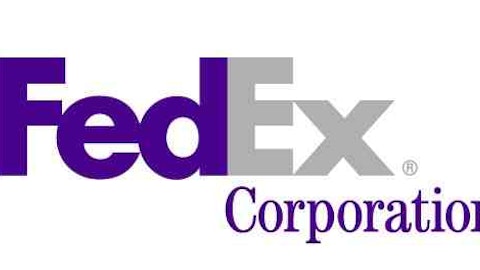Blue-chip stocks were slightly lower today in anticipation of the Federal Reserve’s 2 p.m. EDT announcement about whether or not it would continue with QE3 or begin tapering its purchases of securities in the bond market.
The Dow Jones Industrial Average fell by more than 60 points immediately after the press release was issued, and as of 3:05 p.m. the blue-chip index is down 138 points, or 0.9%. The broader market has fallen by a similar percentage. Based on this reaction, one is left to assume that the news must have been bad, right? Well, not so much.
By way of a brief background, the question was whether or not the central bank’s Federal Open Market Committee, the body responsible for setting monetary policy, would vote in favor of reducing the amount of Treasury bonds and agency mortgage-backed securities that it buys. Since last September, the Fed has bought $45 billion of the former and $40 billion of the latter each month. The result has been to drive down long-term interest rates and fuel a rally in stocks.
With this in mind, here’s the most pertinent paragraph of the FOMC statement (emphasis added):
To support a stronger economic recovery and to help ensure that inflation, over time, is at the rate most consistent with its dual mandate, the Committee decided to continue purchasing additional agency mortgage-backed securities at a pace of $40 billion per month and longer-term Treasury securities at a pace of $45 billion per month. The Committee is maintaining its existing policy of reinvesting principal payments from its holdings of agency debt and agency mortgage-backed securities in agency mortgage-backed securities and of rolling over maturing Treasury securities at auction. Taken together, these actions should maintain downward pressure on longer-term interest rates, support mortgage markets, and help to make broader financial conditions more accommodative.
In other words, the Fed’s not doing anything. It will stay the course “until the outlook for the labor market has improved substantially in a context of price stability.” For the record, the unemployment rate is at 7.6%, and core consumer prices are growing at less than 2%.
The point is that the market overreacted.
In terms of individual stocks, Hewlett-Packard Company (NYSE:HPQ) is one of the few blue-chip stocks in the green this afternoon, up by 0.44% at the time of writing. The catalyst here is hard to identify. As my colleague Dan Dzombak noted, one explanation could be its decision, announced yesterday, to replace the head of its printing and personal-computer business with Dion Weisler, who was previously employed by Lenovo. Beyond this, one could assume that its year-to-date momentum is simply continuing. Since the beginning of the year, it’s up by 69%.
Bank of America Corp (NYSE:BAC) has avoided the brunt of the market’s wrath today. While this is consistent with expectations that the Fed will reduce its bond-buying program, as that would drive long-term interest rates up and therefore expand net interest margins at lenders, the bank’s flat performance nevertheless flies in the face of specifically negative news. Earlier today, it was reported that Bank of America Corp (NYSE:BAC) and other signatories to last year’s landmark National Mortgage Settlement were found to have violated certain of its provisions. If this is true, and the violations remain uncured, the lenders could face stiff financial penalties.
Finally, shares of The Boeing Company (NYSE:BA) are currently down by 1.5%, making it one of the worst-performing stocks on the Dow in afternoon trading. While the company announced strong news at the Paris Air Show regarding orders for its flagship 787 Dreamliner, it was also reported today that the aircraft is continuing to experience mechanical problems. According to media reports, a Toyko-bound 787 was forced to land in Seattle due to problems with an engine.
The Boeing Company (NYSE:BA) is a major player in a multitrillion-dollar market in which the opportunities are massive. However, emerging competitors and the company’s execution problems have investors wondering whether Boeing will live up to its shareholder responsibilities.
The article Today Proves It: Stocks Move Irrationally originally appeared on Fool.com.
John Maxfield owns shares of Bank of America. The Motley Fool recommends Bank of America. The Motley Fool owns shares of Bank of America.
Copyright © 1995 – 2013 The Motley Fool, LLC. All rights reserved. The Motley Fool has a disclosure policy.






